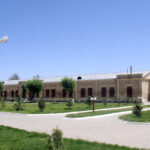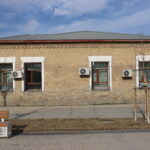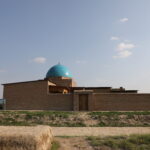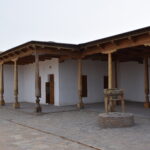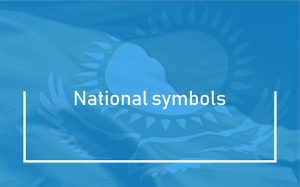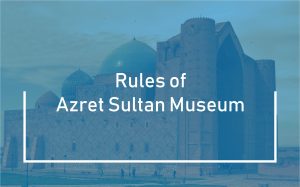Abylai khan (Abulmansur) was khan of Kazakh khanate, who ruled in 1771–1781. He was one of the greatest khans in the history of Kazakh Horde. Founder of Ak Orda, Orda Ejen khan was his ancestor. Abylai khan was direct ancestor of such rulers as Urus khan, Barak khan and Az-Zhanibek. Abylai was fifth generation of Zhangir khan. Zhangir khan had two sons Ualibaky and Tauke. When Zhangir passed, Tauke took over the throne. Taking offence, Ualibaky left to his uncle Kayip khan, who ruled Urgench at that time. Abylai, Ualibaky’s son, was batyr, who defeated enemies in battles, that was why people nicknamed him “Merciless Abylai”. Abylai is having a son, Korkem Uali. During “Aktaban shubyryndy”, his son Abulmansur (later he becomes Kazakh khan, Abylai ) became an orphan and was given to Tole bi Wusun. Looking at his exhausted, hungry face and overgrown hair, Tole bi nicknamed him “Sabalak” (Shaggy). Staying with Tole bi, he was raising camels. As per Shoqan Walikhanov, Abylai was 13 years old at that time. Tole bi had great influence at Abylai khan, he managed to transfer his experience in ruling the country, wisdom and prudence, was able to show the boy that the enemy could be defeated only if bringing people together. Moreover, life experience, difficulties, the future khan had seen since childhood contributed Abylai make early intervention in state’s life. According to the stories of members of oral literature, such as Bukhar-zhirau, Umbetey zhirau, at his twenty Abylai differed with his bravery and fearlessness. This is evidenced by Bukhar-zhirau words: “When you reached your twenties, you fly out of golden nest, like white falcon”. In one of battles of 1730–33, previously unknown young Abulmansur killed Sharysh, the uppermost Kalmyk hero, next of kin of Kaldan Seren (some sources say he was his son in law). During battles, Abulmansur called upon the ghost of his grandfather, being brave and fearless. After his big win in one of battles, Abulmansur became sultan of Middle zhuz. He became one of the greatest rulers of Kazakh steppe. Since then, his name was Abylai, and everyone forgot Abulmansur name. Abylai khan’s twentieth anniversary coincided with year 1733, while according to Chinese sources, Kazakhs and Kalmyks had great battle. Abylai’s military skills and taking command of troops revealed in battles of 30–40s. One of such battles Bukharzhirau illustrated as follows: “night and day they battled with Kaldan”. Such batyrs as, Karakerey Kabanbay, Kanzhygaly Bogenbay, Shakshak Zhanibek, Karakalpak Kylyshbek, Shapyrashty Nauryzbay and others fought in bloody battles together with Abylai. This evidences that Abylai managed to unite Kazakh people against the enemy. Gradually, all authority inside ulus transferred from grandson of Az-Tauke khan Abulmambet to Abylai.
Supporting Abylai’s bravery and wisdom, Abulmambet had limited himself with Counselor khan. According to known documents, in the late 30s of XVIII century Abylai’s name comes across together with Abulmambet khan. Russian historian A.I. Levshin wrote: “In 1739, Abulmambet and Abylai took khan authorities in Middle zhuz instead of Sameke khan, before election of new khan” (Levshin, 1996). This opinion supported by Sh. Walikhanov. Abulmambet khan died in 1771. According to the traditions of Middle zhuz, either Abulmambet’s younger brother or his elder son should be elected. However, at will of sultans, elders and Abulfeiz, representatives of three zhuzes elected Abylai to be khan in Turkestan. Actually, not only Abylai became khan of Middle zhuz, but all Kazakh Horde. Abylai’s policy was adapted to geopolitical location of Kazakh people, between Russian and China empires. With China victory over Dzungarians, entering Central Asia and Kazakhstan, he tried to join muslim countries and held negotiations with Afghan shah Ahmad Durrani. Besides, Abylai khan also wanted to send ambassadors to Turkey. Spending his entire life on a horse and journeys, in spring of 1780 (date of death), Abylay had a six day trip away from Tashkent, around Talas river. He was buried in mausoleum of Khodja Ahmed Yasawi in Turkestan. Abylai was talented, eminent activist and commander. When Abulmambet khan was alive, people considered him to be their defender and leader. He didn’t support the policy of governors and imperial authority. Abylai khan managed to protect the freedom and independence of his people.


